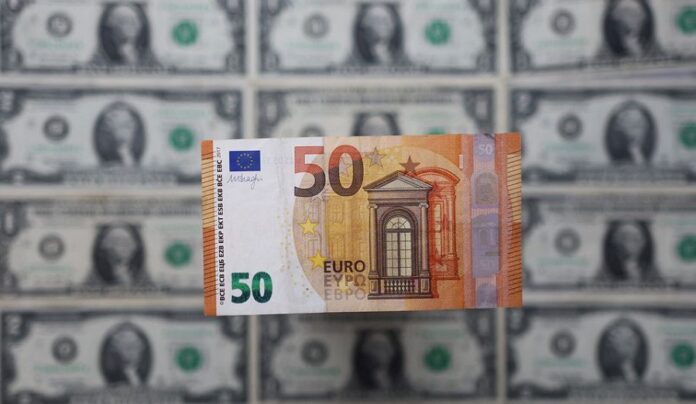The euro edged lower on Friday after European Central Bank officials made mixed comments, while expectations of a 50 basis points (bps) rate hike from the Federal Reserve supported the U.S. dollar, according to Reuters.
ECB President Christine Lagarde provided some dovish signals by saying the central bank might need to cut its growth outlook. This followed ECB dove Luis de Guindos joining a growing number of ECB policymakers in calling for an early end of the Asset Purchase Programme coupled with a rate rise in July.
Fed Chair Jerome Powell confirmed a half-point interest rate increase „will be on the table” when the Federal Reserve meets on May 3-4.
The monetary policy outlook is the main subject for forex markets, because rising interest rates boost the value of currencies.
„To convince the market in the long term, all ECB members have to pull together. There will likely be occasional swings, but these will lead back to USD strength,” Moritz Paysen, forex and rate adviser at Berenberg, said in a research note.
Euro zone PMI data showing business growth unexpectedly accelerated this month failed to provide immediate further direction to the market.
Against the U.S. dollar, the euro fell 0.2% to $1.0812, while the greenback index was up 0.3% at 100.85.
Investors are waiting for Sunday’s run-off of French presidential elections. The last polls showed Emmanuel Macron winning with 55% of the votes.
„Polls suggesting a large advantage for President Emanuel Macron over Marine Le Pen might offer support ahead of the second round of the presidential election in France,” Unicredit analysts said in a note.
Far-right challenger Marine Le Pen becoming France’s new president could generate tensions with European allies, analysts said. Le Pen said she would seek to withdraw France from NATO’s military structure, a move which is close to leaving the European Union and the single currency.
Commodity currencies are in negative territory, and oil prices extended losses on Friday, burdened by the prospect of interest rate hikes, weaker global growth and COVID-19 lockdowns in China hurting demand.
Market participants wondered if this week’s fall was a policy response to counter the economic slowdown.


